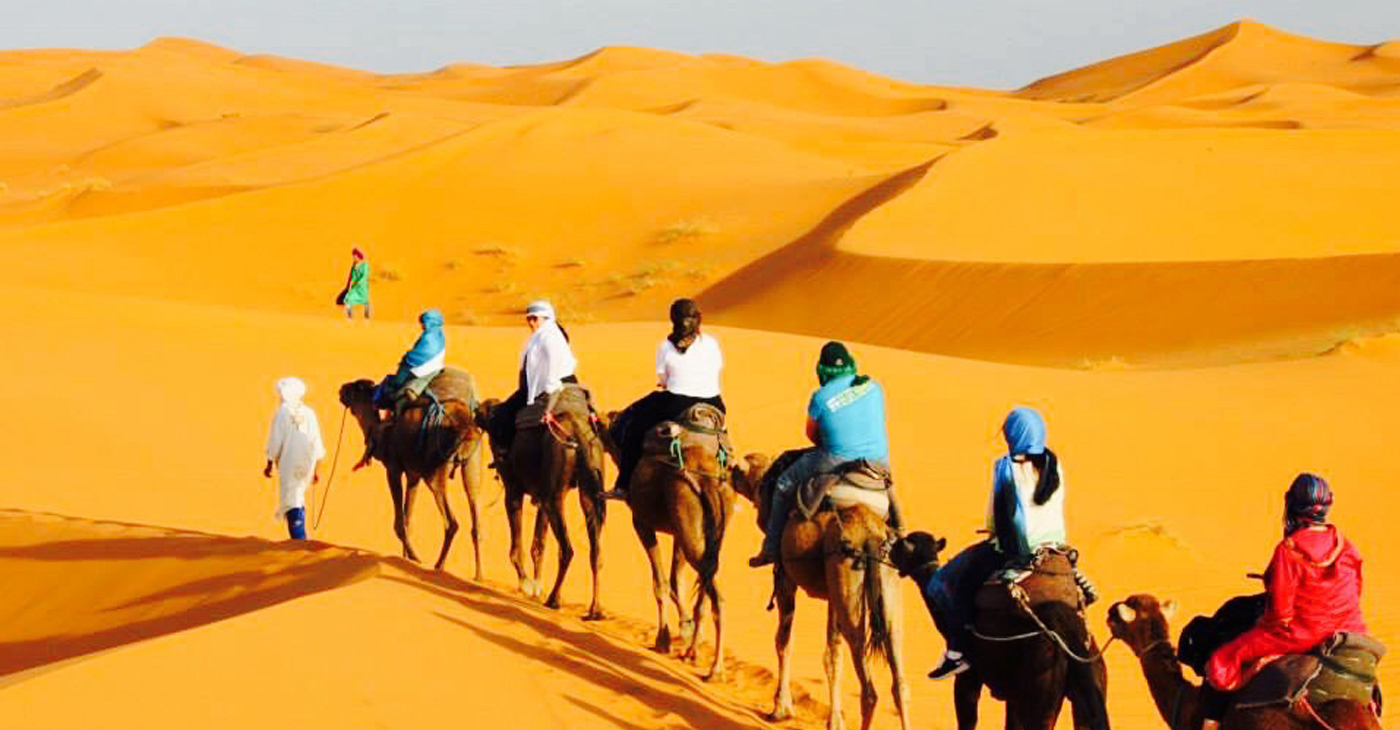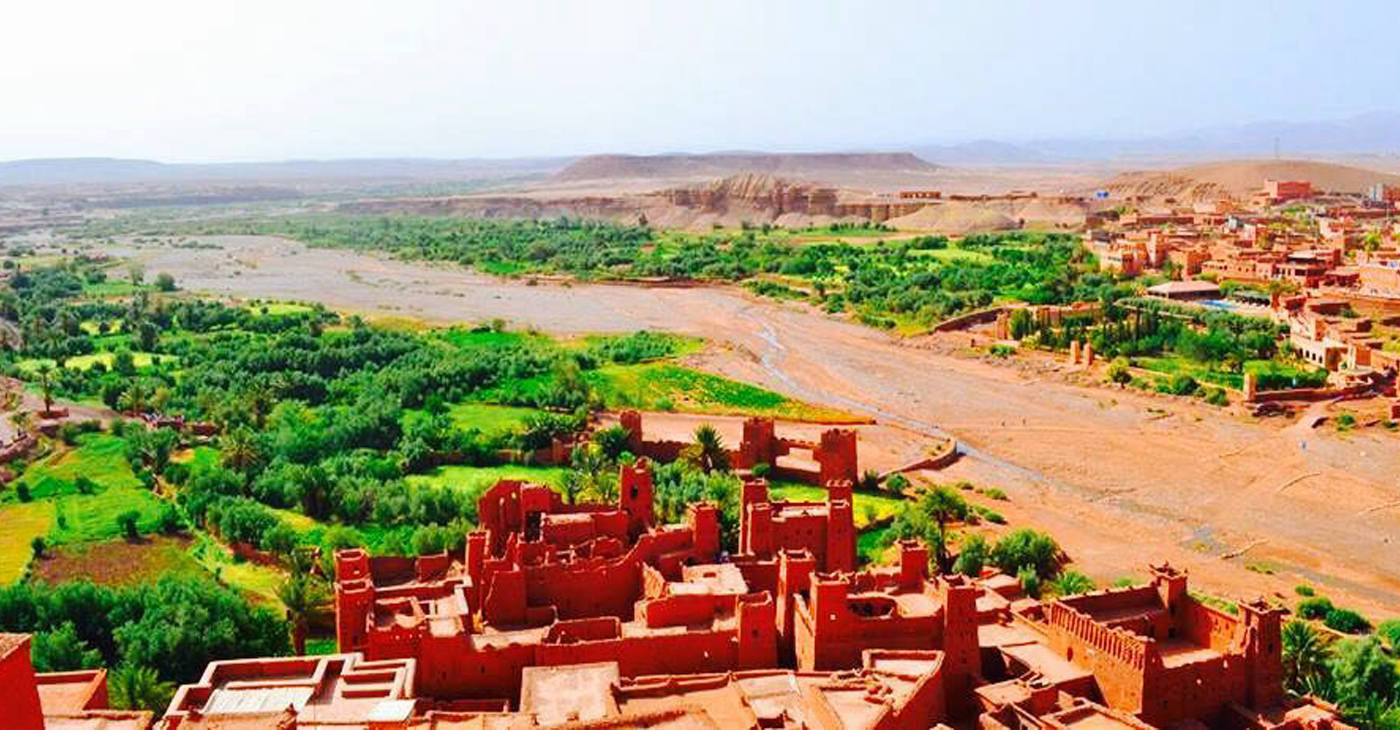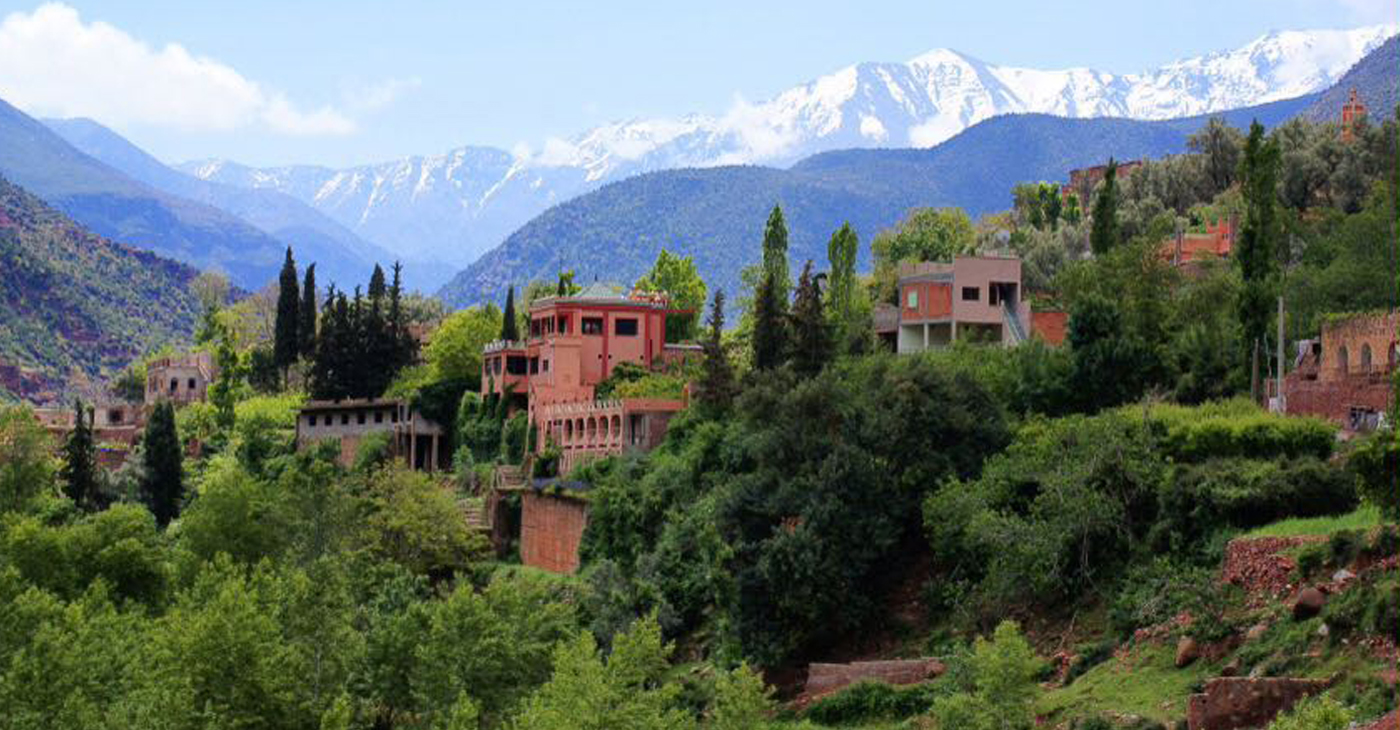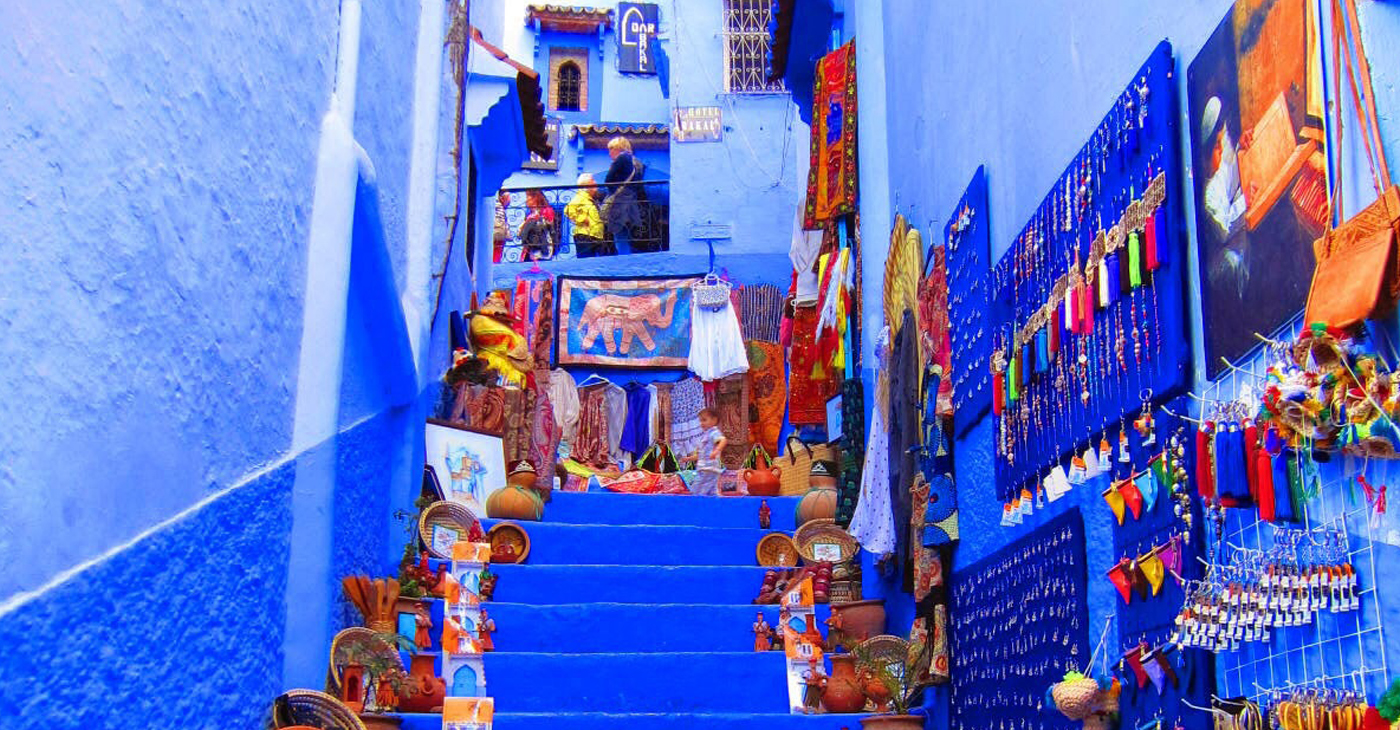1 Day Tours From Marrakech
EXCURSION ESSAOUIRA
 Morocco’s Atlantic Coast is gorgeous and, once you visit, you will want to come back. Essaouira, a relaxed town set 3 hours from Marrakech, is a UNESCO World Heritage Site – a protected city. The ramparts of Essaouria and the 16th century walled city offer astonishing views of the Atlantic Ocean. A day trip to Essaouria – one of the most charming medinas in all of Morocco – will give you ample time to visit the important monuments, the old fish markets, and the seaport. You’ll also have a chance to watch silver craftsmen and wood carvers at work.
Morocco’s Atlantic Coast is gorgeous and, once you visit, you will want to come back. Essaouira, a relaxed town set 3 hours from Marrakech, is a UNESCO World Heritage Site – a protected city. The ramparts of Essaouria and the 16th century walled city offer astonishing views of the Atlantic Ocean. A day trip to Essaouria – one of the most charming medinas in all of Morocco – will give you ample time to visit the important monuments, the old fish markets, and the seaport. You’ll also have a chance to watch silver craftsmen and wood carvers at work.
ATLAS MOUNTAINS
 Pick up at 9am from Marrakech and travel towards the High Atlas Mountains. Asni and surrounding Berber villages delightful spots to get away from hot and exotic attraction of Marrakech to this cold and rugged Berber country home. A cluster of villages around the rivervalley Moulay Ibrahim set in a dramatic setting of the High Atlas Mountains with great views of the highest mountain of Morocco and North Africa Djebel Toubkal. A welcoming atmosphere of tiny villages, steep hillsides, waterfalls, and lush green gardens. Stop at one of the Berber homes for a glass of mint tea. If you like possibility to take a short trek about 20minutes to the waterfalls in the OurikaValley, home to the Toubkal National Park. Expected return at about 5pm.
Pick up at 9am from Marrakech and travel towards the High Atlas Mountains. Asni and surrounding Berber villages delightful spots to get away from hot and exotic attraction of Marrakech to this cold and rugged Berber country home. A cluster of villages around the rivervalley Moulay Ibrahim set in a dramatic setting of the High Atlas Mountains with great views of the highest mountain of Morocco and North Africa Djebel Toubkal. A welcoming atmosphere of tiny villages, steep hillsides, waterfalls, and lush green gardens. Stop at one of the Berber homes for a glass of mint tea. If you like possibility to take a short trek about 20minutes to the waterfalls in the OurikaValley, home to the Toubkal National Park. Expected return at about 5pm.
OUZOUD WATERFALLS
 Images of Ouzoud are featured in almost every Moroccan tourist brochure. The waterfalls are a 3 hour car ride away from Marrakech and are found in the middle of the Atlas Mountain range. Falling from a height in excess of 100 meters, the falls plunge into an endless series of pools. The gorge of the Ouzoud Waterfalls is home to families of Barbary apes and a variety of native avian species – a bird watcher’s delight! Many visitors to Morocco don’t expect this kind of “natural experience”, so a visit to beautiful Ouzoud comes as a refreshing surprise.
Images of Ouzoud are featured in almost every Moroccan tourist brochure. The waterfalls are a 3 hour car ride away from Marrakech and are found in the middle of the Atlas Mountain range. Falling from a height in excess of 100 meters, the falls plunge into an endless series of pools. The gorge of the Ouzoud Waterfalls is home to families of Barbary apes and a variety of native avian species – a bird watcher’s delight! Many visitors to Morocco don’t expect this kind of “natural experience”, so a visit to beautiful Ouzoud comes as a refreshing surprise.
OURIKA VALLEY
 A favorite weekend escape for native Moroccans, the Ourika Valley is 30 km from Marrakech and rests between the foothills of the Atlas Mountains. An escape from city life, the Valley draws visitors with a welcoming atmosphere of tiny villages, steep hillsides, waterfalls, and lush green gardens. Don’t forget to stop and visit the Berber villages on the way. Ourika Valley can be visited only as half day tour instead of the full day. You can enjoy it in the morning with return to Marrakech after lunch or if you prefer you can depart Marrakech, enjoy the afternoon in the Ourika and then return to Marrakech after dinner in the valley.
A favorite weekend escape for native Moroccans, the Ourika Valley is 30 km from Marrakech and rests between the foothills of the Atlas Mountains. An escape from city life, the Valley draws visitors with a welcoming atmosphere of tiny villages, steep hillsides, waterfalls, and lush green gardens. Don’t forget to stop and visit the Berber villages on the way. Ourika Valley can be visited only as half day tour instead of the full day. You can enjoy it in the morning with return to Marrakech after lunch or if you prefer you can depart Marrakech, enjoy the afternoon in the Ourika and then return to Marrakech after dinner in the valley.
OUARZAZATE (TELOUET & AIT BEN HADDOU KASBAHS)
 This full-day excursion will take you across the High Atlas chain through the Tizi N’Tichka pass – an imposing landscape of the high mountains and traditional Berber villages. The descent along the east side of the chain offers a sudden change in the lush landscape to an arid, desert panorama. In Ouarzazate, visit the Kasbah of Ait Ben Haddou and Taourirt Kasbah. Ait Ben Haddou is UNESCO protected 11th century site that inspired many movie makers, Gladiator and Lawrence of Arabia was filmed there. The views from the upper heights are awe inspiring and worth the required climb of narrow, winding streets.
This full-day excursion will take you across the High Atlas chain through the Tizi N’Tichka pass – an imposing landscape of the high mountains and traditional Berber villages. The descent along the east side of the chain offers a sudden change in the lush landscape to an arid, desert panorama. In Ouarzazate, visit the Kasbah of Ait Ben Haddou and Taourirt Kasbah. Ait Ben Haddou is UNESCO protected 11th century site that inspired many movie makers, Gladiator and Lawrence of Arabia was filmed there. The views from the upper heights are awe inspiring and worth the required climb of narrow, winding streets.
MARRAKECH
 Marrakech Sightseeing Activities and things to do & see in Marrakech .
Marrakech Sightseeing Activities and things to do & see in Marrakech .
As any one knows Marrakech is one of the oldest imperial cities founded around 1060-1106) by the king Youssef Ibn Tachafine the empire of the Berber Dynasty Almoravides (, Located in the Hawz, an agricultural plain bounded to the south and east by the High Atlas mountains, and watered by the Tansift river, called the perle of the south, it has a stunning view over the snow-capped High Atlas Mountains surrounded by thousands palms & agriculture fields.
Under the gouvernance of Almaravides dynasty (1055–1157)Marrakech became the base fo the trade & conquest of Morocco, portions of the Maghrib, and Andalusia.
The ampire has expanded in that time from spain to senegal, Marrakech was the crossroads of ancient caravan routes from Timbuktu made it a key destination for trade and reprieve for weary sub-Saharan traders carrying gold, salt and slaves bound for Europe.







 1
1 2
2 3
3 4
4 5
5